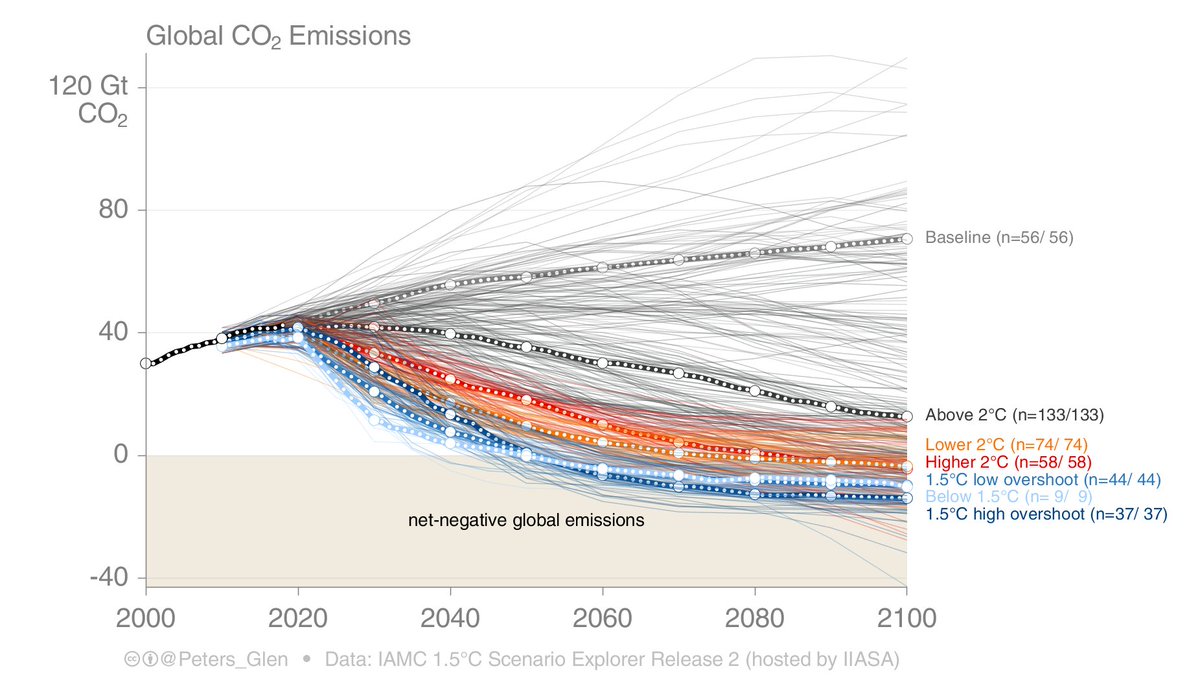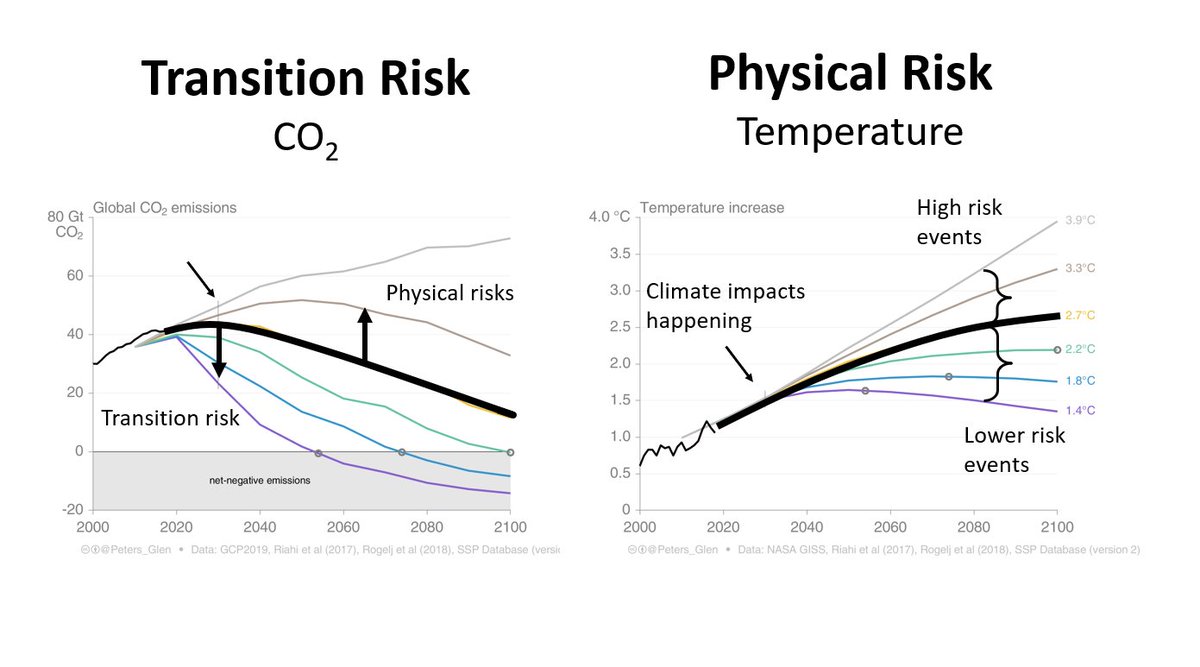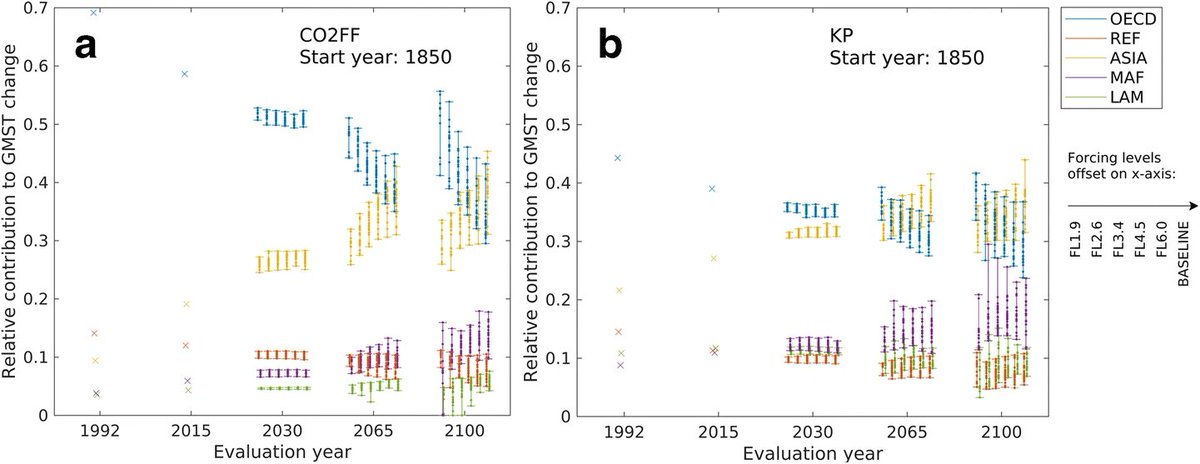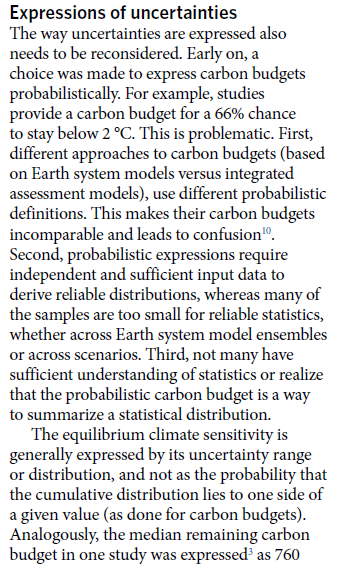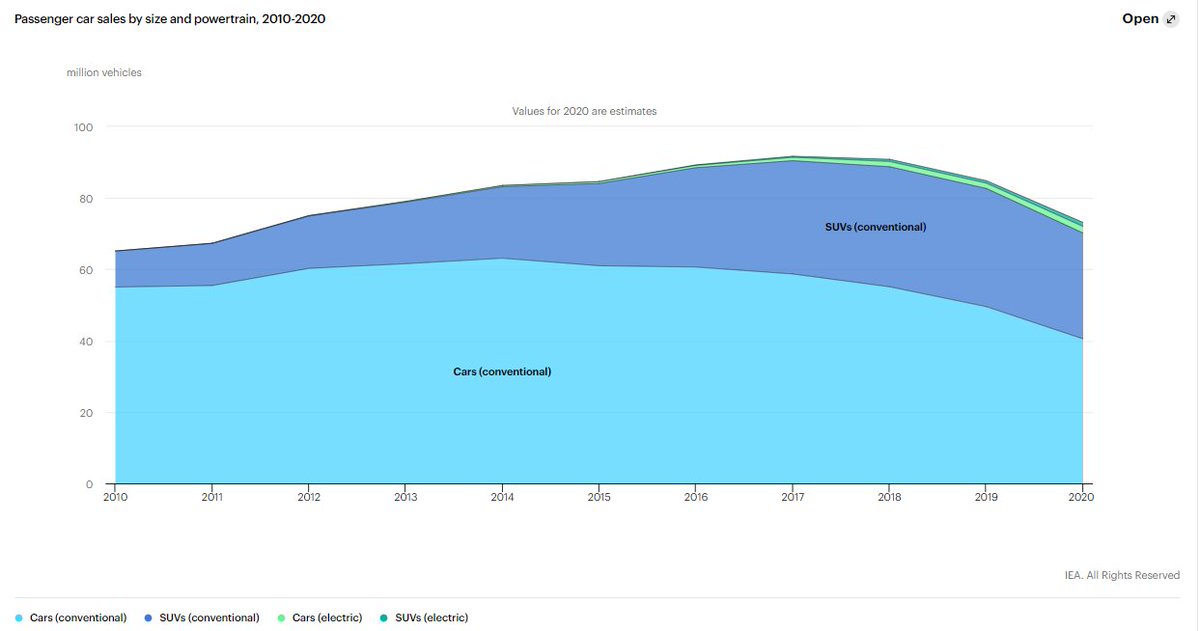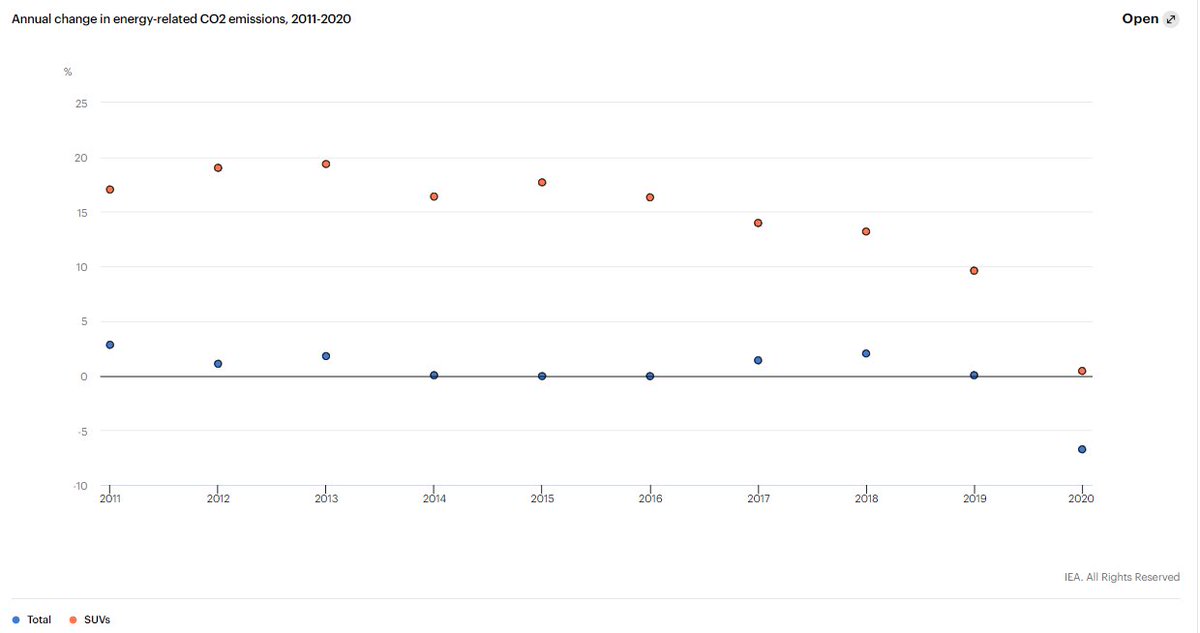
Oslo had a goal to halve emissions in 4 years (to 2020), but emissions have only gone down 2.5% over that time.
Perhaps some things are out of Oslo's control, or, perhaps, reducing emissions is not so easy 🤔...
1/
nrk.no/norge/de-rodgr…
Perhaps some things are out of Oslo's control, or, perhaps, reducing emissions is not so easy 🤔...
1/
nrk.no/norge/de-rodgr…
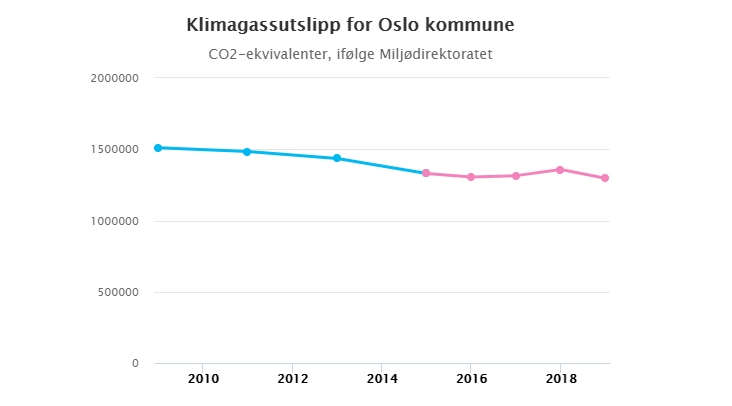
Oslo had a plan that was distributed across sectors. It is fair to argue that some things were out of their control (CCS at Klemetsrud), but not all things.
There was meant to be a 40% reduction in transport, for example, with many local measures.
2/
There was meant to be a 40% reduction in transport, for example, with many local measures.
https://twitter.com/Peters_Glen/status/782139743425302528
2/
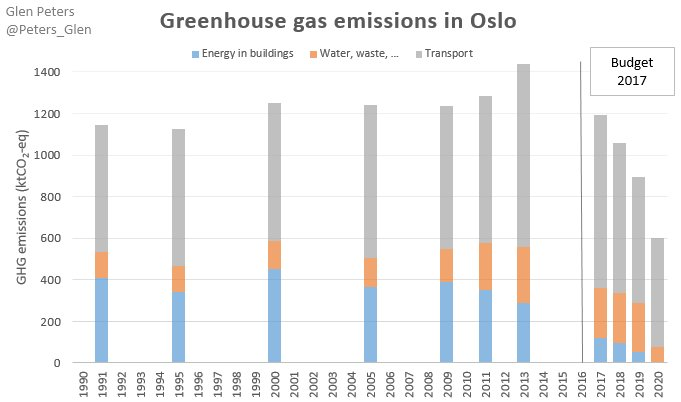
Here is how transport emissions were meant to go down. Perhaps Oslo did well on the collective transport, but how was progress across other transport sub-sectors?
/3
https://twitter.com/Peters_Glen/status/782176987762790400
/3
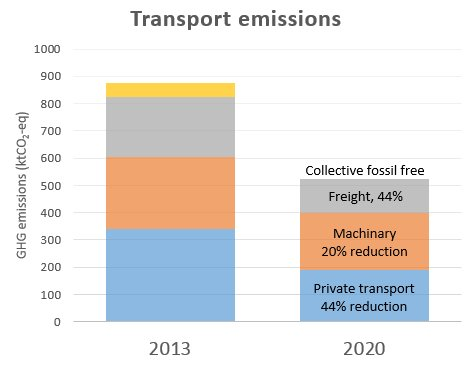
Here are the measures that were meant to meet the target. A lot of these seem to be in Oslo's control?
We need to see a comparison of progress on each of these items & evaluate why emissions didn't go down (or why the original estimates were high).
/4
We need to see a comparison of progress on each of these items & evaluate why emissions didn't go down (or why the original estimates were high).
https://twitter.com/Peters_Glen/status/784688032242860032
/4
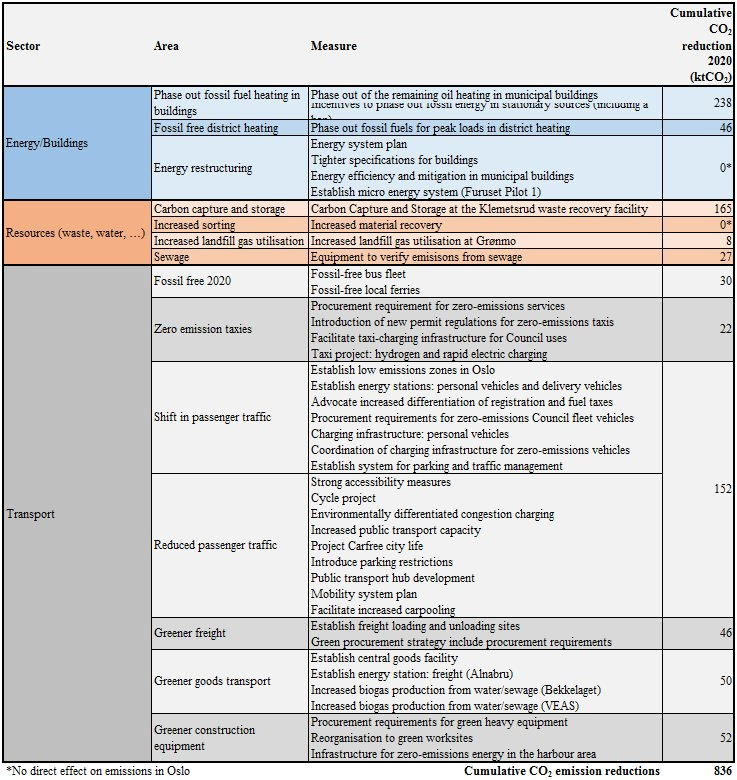
Norway has been traditionally good at making ambitious climate pledges, but generally very bad at meeting them...
Now Oslo is in the same boat. I have no doubt Oslo tried, so what goes wrong? Sounds like a good research project...
cicero.oslo.no/no/posts/nyhet…
5/5
Now Oslo is in the same boat. I have no doubt Oslo tried, so what goes wrong? Sounds like a good research project...
cicero.oslo.no/no/posts/nyhet…
5/5
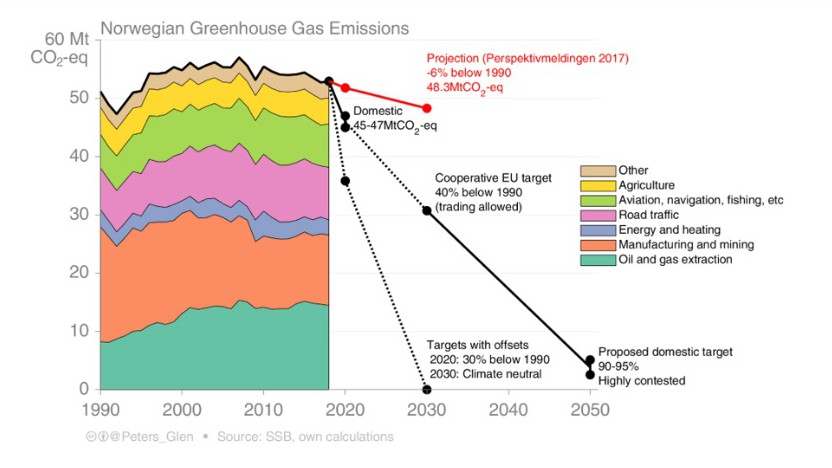
• • •
Missing some Tweet in this thread? You can try to
force a refresh

